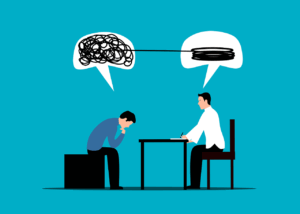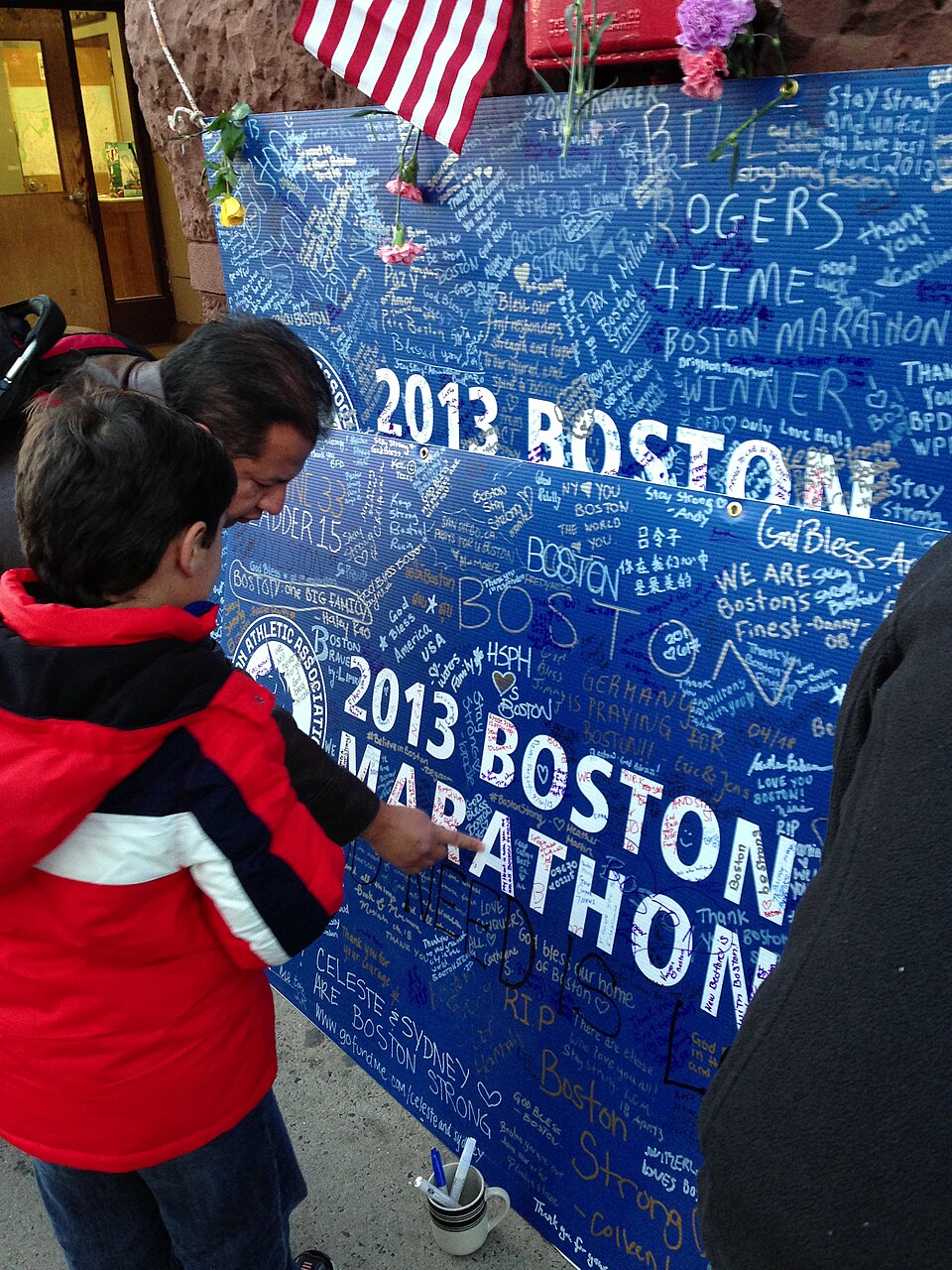 Zines, short for “magazines or fanzines,” are small, independently produced booklets that generally feature unique art and aesthetics. They are typically created through a do-it-yourself (DIY) approach, often using photocopying for distribution. Zines started back in the 1930s commonly for science fiction fans, expanding in popularity by the 1970s by covering a wide range of alternative topics, like punk rock music, feminism, or other topics frequently underrepresented in mainstream media. They serve as an accessible platform for individuals with lived experiences, allowing them to voice their stories and perspectives that are often unheard or silenced. Librarians and educators have increasingly recognized the value of zines, integrating them into collections, research and teaching practices. This has led to the development of a “zine pedagogy,” which examines the various beliefs, ideas generally held to be true within society, that zines challenge, examine, or support in learning and unlearning. In addition to their educational applications, zines have been utilized in public health initiatives. Applied social scientists and practitioners have also integrated an alternate format known as graphic medicine, which personalizes health experiences through graphic storytelling. This approach has proven effective in addressing various public health topics, including mental health and the experiences of patients and healthcare workers.
Zines, short for “magazines or fanzines,” are small, independently produced booklets that generally feature unique art and aesthetics. They are typically created through a do-it-yourself (DIY) approach, often using photocopying for distribution. Zines started back in the 1930s commonly for science fiction fans, expanding in popularity by the 1970s by covering a wide range of alternative topics, like punk rock music, feminism, or other topics frequently underrepresented in mainstream media. They serve as an accessible platform for individuals with lived experiences, allowing them to voice their stories and perspectives that are often unheard or silenced. Librarians and educators have increasingly recognized the value of zines, integrating them into collections, research and teaching practices. This has led to the development of a “zine pedagogy,” which examines the various beliefs, ideas generally held to be true within society, that zines challenge, examine, or support in learning and unlearning. In addition to their educational applications, zines have been utilized in public health initiatives. Applied social scientists and practitioners have also integrated an alternate format known as graphic medicine, which personalizes health experiences through graphic storytelling. This approach has proven effective in addressing various public health topics, including mental health and the experiences of patients and healthcare workers.
As part of my work as a postdoctoral scholar on a National Institute of Health (NIH) ComPASS grant, our research team, which included individuals with a history of incarceration and those affected by coercive control, used zines to address stigma, a negative label characterized by one or more personal traits that form a stereotype about the individual. We implemented a qualitative study using a community-based participatory research approach. The primary aim of our in-depth interviews, a one-on-one open-ended method that probes for deeper meaning and understanding of the responses of the interviewee, was to create stigma-reducing content around mental health and incarceration. Our research team recruited formerly incarcerated individuals for virtual interviews to understand experiences of re-entry, access, and use of health care. By collaborating with individuals and participants with lived experience with incarceration, masculinity, and mental health to create effective language and infographics, we aim to reduce stereotypes, generalized opinions and impressions of individuals, groups, or social classes that often accompany these experiences. As a final product, our team co-created two zines: one focused on mental health stigma and the other on incarceration stigma. We think that by working together to educate returning citizens and the community, this work has significant potential to help people with a history of incarceration or coercive control.
Impact of Incarceration
 Prisons, also known as correctional facilities, are environments that can significantly impact the physical and mental health of individuals. They often expose incarcerated individuals to violence, poor nutrition, unsanitary conditions, solitary confinement, dehumanization, and overcrowding. Each of these factors contributes to adverse health outcomes that are often not adequately addressed or treated. Research indicates that individuals who have been incarcerated experience higher rates of communicable diseases, chronic health conditions, trauma symptoms, substance abuse, and psychiatric disorders compared to those who have not been incarcerated. The mental health challenges faced by individuals in the carceral system are exacerbated by stigma, which can further isolate and marginalize them.
Prisons, also known as correctional facilities, are environments that can significantly impact the physical and mental health of individuals. They often expose incarcerated individuals to violence, poor nutrition, unsanitary conditions, solitary confinement, dehumanization, and overcrowding. Each of these factors contributes to adverse health outcomes that are often not adequately addressed or treated. Research indicates that individuals who have been incarcerated experience higher rates of communicable diseases, chronic health conditions, trauma symptoms, substance abuse, and psychiatric disorders compared to those who have not been incarcerated. The mental health challenges faced by individuals in the carceral system are exacerbated by stigma, which can further isolate and marginalize them.
Mental Health Stigma
Our NIH project sought to understand the personal troubles, matters experienced at the individual level for people recently released from prisons that are exacerbated by social stigma, a label associating an individual with a set of unwanted characteristics that form a stereotype. In addition to social stigma, individuals, especially those living with mental health concerns, as well as those who have experienced coercive control, frequently struggle with self-stigma, which can further hinder their ability to seek help. By addressing and reducing these types of stigmas, we hope to encourage individuals re-entering their communities to engage with mental health services, ultimately fostering healthier communities.
Findings from the qualitative interviews with formerly incarcerated men revealed that they often felt constrained by feeling rules, norms about which emotions are appropriate to display in a given situation, while incarcerated, that prohibited them from expressing and moving through emotions in healthy ways. One participant, Jesus, articulated this challenge when asked what programming is needed, stating:
“I would say stress management for sure. Basic fundamentals about emotions and processing them, because in prison you can’t have emotions . . . So definitely processing, processing the emotions of life in a healthy manner without turning to some type of unhealthy means. Whether it be, you know, drugs, alcohol, too much sex.”
This highlights the need for education and access to self-care and mental health care on stress, emotions, and healthy coping strategies, particularly in the context of incarceration.
Additionally, notions of masculinity, traditional behaviors and traits associated with men, that due to gender norms, behaviors or traits that society attributes to a particular sex, commonly further complicate the emotional and interpersonal landscape for men. Societal expectations often discourage men from seeking mental health care or openly expressing their emotions, leading to unhealthy coping mechanisms such as substance use/abuse or risky behaviors.
Community-Based Solutions to Stigma
 These zines incorporated artwork by two formerly incarcerated men, integrated quotes from formerly incarcerated individuals, and supplied educational information on combating stigma related to mental health and incarceration. The zines will be distributed to local government facilities, non-profit agencies, and independent bookstores in a handful of states to help inform community members and support recently released individuals. In addition to printed copies, both zines will be hosted online by the non-profit organization that served as the hub for the NIH ComPASS grant. The zine titled “The De-Carcerated Mind” is about stigma, mental health, men, and incarceration, featuring artwork by Yusef Qualls. The second zine, titled “Re-Casting Incarceration” is about stigma and incarceration, featuring artwork by Aaron Kinzel. Both zines aim to foster a behavioral shift among formerly incarcerated individuals and the broader community, encouraging increased engagement in mental health services, self-care practices, and improved well-being.
These zines incorporated artwork by two formerly incarcerated men, integrated quotes from formerly incarcerated individuals, and supplied educational information on combating stigma related to mental health and incarceration. The zines will be distributed to local government facilities, non-profit agencies, and independent bookstores in a handful of states to help inform community members and support recently released individuals. In addition to printed copies, both zines will be hosted online by the non-profit organization that served as the hub for the NIH ComPASS grant. The zine titled “The De-Carcerated Mind” is about stigma, mental health, men, and incarceration, featuring artwork by Yusef Qualls. The second zine, titled “Re-Casting Incarceration” is about stigma and incarceration, featuring artwork by Aaron Kinzel. Both zines aim to foster a behavioral shift among formerly incarcerated individuals and the broader community, encouraging increased engagement in mental health services, self-care practices, and improved well-being.
The use of zines as a tool for addressing mental health and incarceration stigma presents a unique opportunity to engage communities in meaningful dialogue. By centering the voices of those with lived experiences, these zines challenge prevailing stereotypes and promote understanding. The integration of art and personal narratives not only makes the content more relatable but also empowers individuals to creatively share their stories. By distributing these zines and facilitating discussions around their content, we hope to create a more supportive environment for individuals navigating the challenges of mental health and re-entry into society.
Mooney is a guest blogger at UITAC Publishing. UITAC’s mission is to provide high-quality, affordable, and socially responsible online course materials.
Images used in this blog:
- Colorado college zines by Colorado College Tutt Library is licensed under CC BY 2.0. This image has not been altered.
- UK and US zines by Burn_the_asylum is licensed under CC BY-SA 3.0. This image has not been altered.
-
Depression, Voices, Self-Criticism by johnhain is licensed on Pixabay. This image has not been altered.
-
Therapy, Counseling, Support by Mohamed_hassan is licensed on Pixabay. This image has not been altered.



